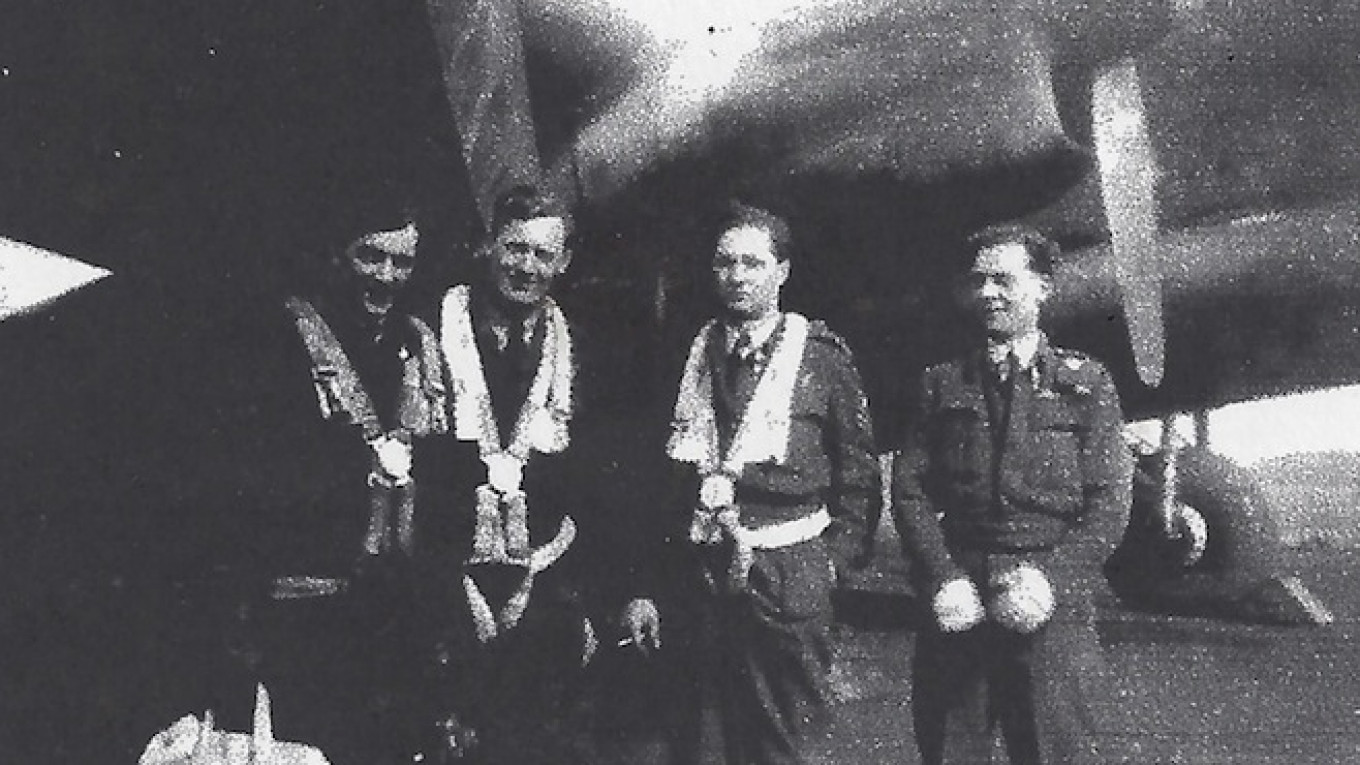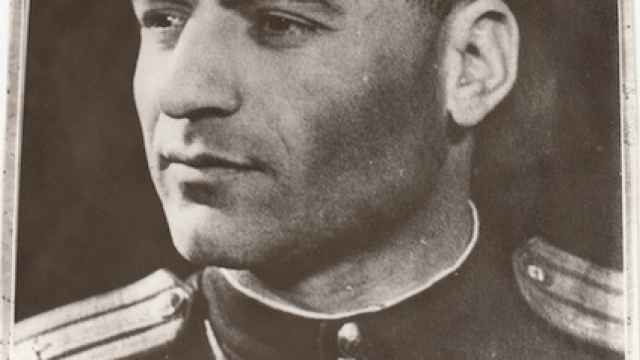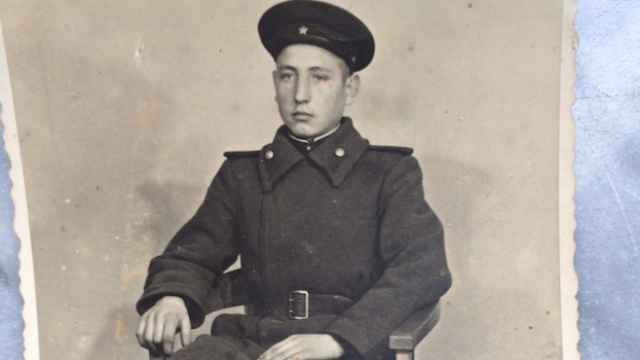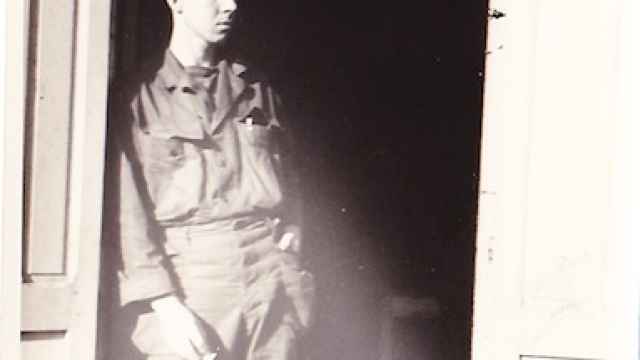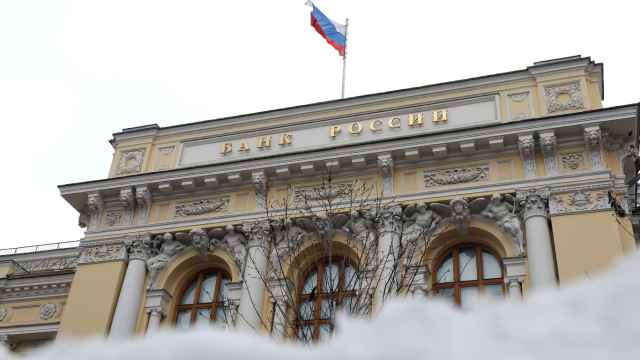In the run-up to Victory Day on May 9, when Russia commemorates 70 years since the Allied victory over Nazi Germany, staff members at The Moscow Times describe the wartime experiences of their own families.
Today, web editor Jennifer Monaghan tells the story of her grandfather.
My grandfather John Monaghan was 17 ½ years old when he signed up to join the British Royal Air Force in 1942, though he had to wait another six months before he was accepted. In the meantime, he was engaged in war work — electrical wiring — which he had been doing since the age of 15. This stood him in good stead when he later became a wireless operator in Bomber Command's No. 166 squadron.
Granddad was put on operational duty in February 1945, joining six others — five Canadians and a Brit — in the seven-man crew of a Lancaster Bomber. As a wireless operator, it was his job to listen out for messages from base, giving information on weather, any changes of course and recalls. He was the only point of contact between base and the bomber stream.
My grandfather flew about 14 or 15 raids during the war, both during the day and at night. He says that he once went to Berlin — a 9 ½ hour round trip that involved flying hundreds of kilometers of diversionary routes to avoid enemy gun emplacements.
In the 10 days before the formal conclusion of the war in Europe, Granddad took part in "Operation Manna," a humanitarian mission over enemy-occupied Holland. Thousands of Dutch people were dying from starvation and a truce was agreed to allow the bombers to fly over and drop much-needed food parcels.
It was during this operation that my grandfather saw his first German AKAK anti-aircraft gun and its crew as his plane approached the Dutch coast. Flying at about 15 meters above the ground, the bomber dropped basic food supplies "and a few bars of chocolate from the crew members" over The Hague and several other settlements.
The European war was formally brought to an end on May 8 — celebrated in Russia on May 9 — but to my Granddad it was "just another day, really." Several days later he was back in training to go out to the Far East, though the dropping of atomic bombs on Hiroshima and Nagasaki in August 1945 brought a swift end to the conflict.
Of the 7,373 Lancaster Bombers that took part in operations during World War II, a total of 3,345 were lost, according to RAF statistics. Granddad's own plane was turned to scrap shortly after the war — his crew flew the plane down to the scrapyard themselves and taxied back in another Lancaster. There are now only two such planes left in existence, one in Britain and one in Canada.
Granddad left the RAF in March 1947 when he was demobbed — given "a full suit, a trilby and a raincoat" to return him to civilian life. All the suits and raincoats were the same, however, so the ex-servicemen didn't blend into civilian society any more than they had done in a full uniform.
A Message from The Moscow Times:
Dear readers,
We are facing unprecedented challenges. Russia's Prosecutor General's Office has designated The Moscow Times as an "undesirable" organization, criminalizing our work and putting our staff at risk of prosecution. This follows our earlier unjust labeling as a "foreign agent."
These actions are direct attempts to silence independent journalism in Russia. The authorities claim our work "discredits the decisions of the Russian leadership." We see things differently: we strive to provide accurate, unbiased reporting on Russia.
We, the journalists of The Moscow Times, refuse to be silenced. But to continue our work, we need your help.
Your support, no matter how small, makes a world of difference. If you can, please support us monthly starting from just $2. It's quick to set up, and every contribution makes a significant impact.
By supporting The Moscow Times, you're defending open, independent journalism in the face of repression. Thank you for standing with us.
Remind me later.


